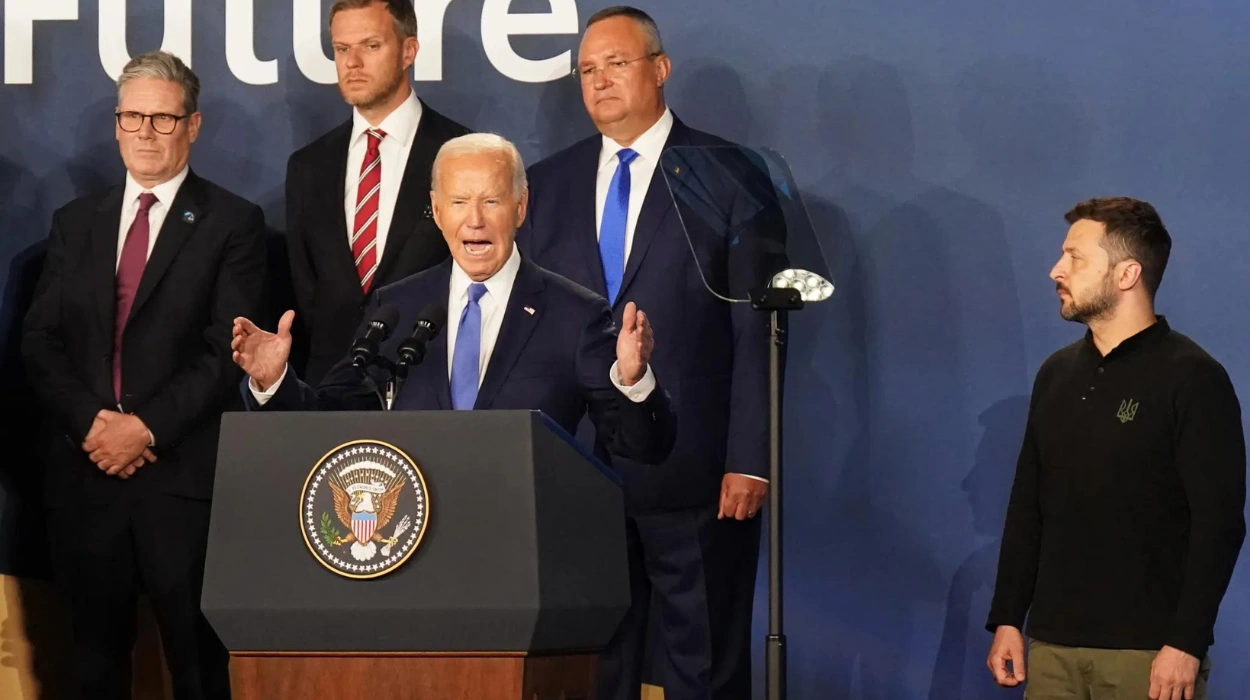USA (Transatlantic Today)- The recent NATO summit in Washington, D.C., held to mark the alliance’s 75th anniversary, was heavily influenced by concerns over the upcoming US presidential election. European diplomats, already struggling with the sweltering heat in Washington, found themselves further unsettled after President Joe Biden’s shaky performance at the debate on June 27. This raised the prospect of a possible return of Donald Trump to the White House and caused considerable anxiety among NATO leaders.
Biden’s Performance Under Scrutiny
National Security Advisor Jake Sullivan claimed that Biden’s NATO allies have praised him and his efforts to strengthen the alliance, but there are reportedly underlying concerns about Biden’s ability to win re-election. It became particularly embarrassing when Biden introduced Ukrainian President Volodymyr Zelenskyy as “President Putin.” This gaffe and other issues have raised questions about Biden’s ability to speak about Biden’s viability as a candidate, with some leaders subtly planning for the possibility of Trump’s comeback.
Trump’s Potential Return Raises Fears
Donald Trump’s previous term saw a consistent skepticism towards long-term alliances, particularly NATO, which he described as “obsolete.” His threats to withdraw from NATO and demands for increased defense spending by member countries caused considerable tension. The fear of Trump’s return has even led to the coining of the term “moshitora” in Japanese, meaning “what if Trump?”
NATO’s Response to Russian Aggression
According to VOX, the alliance’s focus has shifted back to its original mission of protecting Europe from Russia, especially in light of the Ukraine invasion. This shift has led to the inclusion of Sweden and Finland in NATO and a significant increase in defense spending among member nations. However, Trump’s potential return threatens to disrupt the support for Ukraine, with reports suggesting he may pressure Ukraine into negotiations with Russia by withholding U.S. military aid.
Navigating the “Trump-Proofing” Strategy
NATO policymakers have attempted to safeguard support for Ukraine by setting up a command center in Germany to coordinate military aid. Despite these efforts, the alliance remains heavily reliant on U.S. support. Ukrainian officials have emphasized the economic benefits of supporting Ukraine, appealing to the defense industry interests that align with Trump’s base. European leaders are also preparing to work with a potential Trump administration, focusing on finding common ground rather than confronting him directly.
Future Uncertainty for NATO
As NATO commemorates its 75th anniversary, the alliance faces a precarious future with the looming possibility of Trump’s return to the U.S. presidency. European leaders are adopting a cautious approach, hoping to maintain the transatlantic relationship and address the defense spending issues that Trump previously highlighted. The upcoming election results will significantly impact NATO’s direction and its efforts to counter Russian aggression and support Ukraine.


























